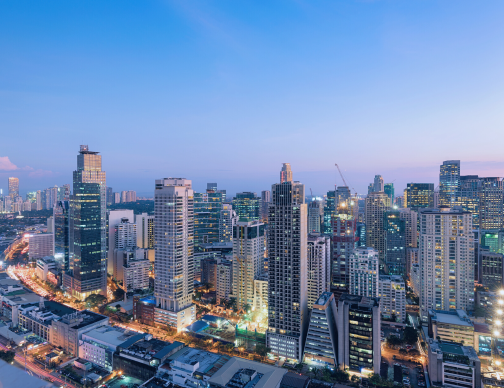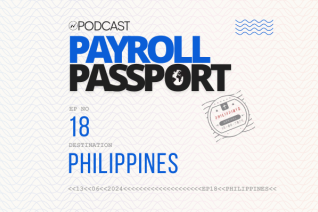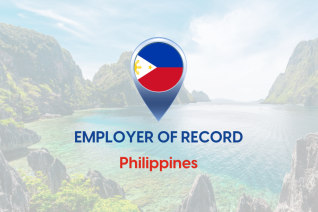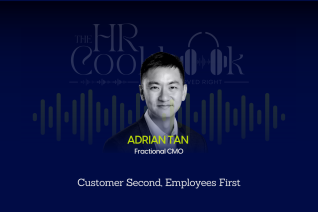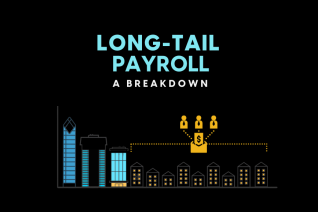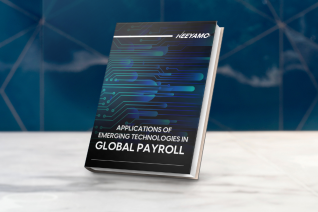Establish your presence globally with Neeyamo as we help you go beyond borders to manage your global payroll and hire new talent in the Philippines.
Overview
The Philippines is located in Asia, sharing its maritime borders with Indonesia, China, Japan, Palau, Malaysia, Vietnam, and Taiwan.
The prominent industries include manufacturing, agribusiness, mining, mineral processing, pharmaceuticals, shipbuilding, and electronics.
Do your organization’s expansion plans require you to hire employees in the Philippines? Do you lack a physical entity in the country – a key requisite to hire local talent? Neeyamo provides assistance for onboarding and management of employees along with the processing of a firm's compliance, benefits, payroll in the Philippines, and more.
Our Presence
Tools And Instances
Facts And Stats
Capital
Manila
Currency
Philippine Peso (PHP)
Official Language
Filipino, English
Fiscal Year
1 January to 30 December
Date Format
MM/DD/YYYY
Country Calling Code
63
Time Zone
Philippines Time Zone (UTC +8.00)
Global Payroll
Overview
Handling payroll for global workforce can pose a significant challenge for any organization, and the added complication of compliance can make things worse. If companies spend more time processing payroll, it directly impacts day-to-day operations and their overall productivity.
Over the years, Neeyamo has observed these complexities and strived to provide a global payroll solution through a single technology platform - Neeyamo Payroll. Assessing payroll industry trends, Neeyamo offers a consolidated solution in its Global Payroll Technology Stack.
Payroll Taxes
Payroll tax is the percentage amount retained from an employee's salary and paid to the government to invest in the general population's welfare. These are statutory in nature and are levied from both the employer and employee. Additional statutory contributions are made by employers towards aiding both short-term and long-term benefits for their employees.
Employee Taxes
The following payroll contributions are made by employees:
- 4% - Social security (SSS)
- Between 22.50 PHP and 225 PHP per month if an employee earns more than 20,000 PHP per month – Mandatory Provident Fund (WISP - a pension fund)
- 2% - Home development mutual fund (this contribution is capped at 100 PHP)
- 1.75% - Philippine Health Insurance Corporation (PHIC)
Payroll tax in the Philippines is charged at a progressive rate. There are five tax bands, with annual earnings up to 250,000 PHP (approximately 4,900 USD) exempt:
| 251,000 PHP to 400,000 PHP | 20% |
| 400,000 PHP to 800,000 PHP | 25% |
| 800,000 PHP to 2,000,000 PHP | 30% |
| 2,000,000 PHP to 2,410,000 PHP | 32% |
| Above 2,410,000 PHP | 35% |
New social security contribution
With effect from January 1, 2023, Employees will have to pay a higher monthly contribution.
Reduction in personal income tax
With effect from January 1, 2023, anyone earning less than PHP 250,000 in taxable income per year is still exempt from paying personal income taxes under the amended tax rates.
Sets the maximum taxable income at more than PHP 8,000,000 and subjects it to a 35% marginal rate.
The new tax lowers personal income taxes for people earning PHP 8,000,000 or less.
With effect from January 2, 2023, Phil Health's contribution rate for 2023 is increased from 4% to 4.5%.
Employer Taxes
Employer Payroll Contributions is as follows
| Social security (SSS) | 8.50% |
| Mandatory Provident Fund (WISP - a pension fund) | Between 42.50 PHP and 425 PHP per month if an employee earns more than 20,000 PHP per month |
| Home development mutual fund (this contribution is capped at 100 PHP) | 2% |
| Philippine Health Insurance Corporation (PHIC) | 1.75% |
Payroll Cycle
Overview
Undoubtedly, payroll is a critical process for any organization. The pay cycle in Philippines refers to the period for which an organization pays its employees, which can vary depending on the pay frequency the organization chooses to adopt.
Frequency
Salaries are usually paid bi-monthly on the 15th and the 30th of every month. Organizations also choose to follow a monthly pay frequency.
13th Month Cycle
13th month salary is mandatory in Philippines and is equal to 1/12th of the employee's salary during the same calendar year.
Global Work
Overview
An Employer of Record services (EOR) provider helps you eliminate the hassle of handling complexities while onboarding a new employee in an international location. They help bridge the gap that otherwise mandates organizations to have a local registered entity and a local bank account prior to making a job offer to an international hire.
A global employer of record service provider acts as a legal employer, facilitates salary payments, and manages other statutory requirements such as health insurance, payroll taxes, and employee benefits, ensuring compliance with local tax laws and regulations.
This allows organizations to focus on collaborating with employees in the Philippines for operational tasks, with the knowledge that they have a cost-effective solution that supports their global payroll & HR requirements as they continue their global expansion. Neeyamo offers EOR as an outsourcing provider and can assist you in managing your long-tail employees.
HR Mandates and Practices
Minimum Wage
Minimum wage requirements vary across the Philippines. The rate an employer has to pay depends upon the region of the country in which their employee is based.
In the capital city of Manila, employees are entitled to a minimum wage of 537 PHP per day. But in a poorer, more rural region like Ilocos, the minimum wage falls to 243PHP per day. The average wage in the Philippines is around 44,600PHP per month.
Effective July 1, 2024, in the National Capital Region, the minimum daily wage rate for the non-agricultural sector/industry stands at 645 PHP per day.
Overtime
On regular days, all hours worked above the standard 8 hours a day must be compensated by providing a daily salary plus a minimum of 25% additional pay. On Special holidays, all hours worked above the standard 8 hours a day must be compensated by providing the daily salary plus a minimum of 30% additional pay.
On legal holidays, all hours worked above the standard 8 hours a day must be compensated by providing double the daily salary.
Persons who work in supervisory or managerial roles are specifically excluded from the overtime pay.
Data Retention Policy
Employment records required to be kept and maintained by employers shall be preserved for at least three (3) years from the date of the last entry in the records.
For tax-related purposes, however, records must be preserved for a period of ten (10) years reckoned from the day following the deadline for filing a return. Recruitment record - 6 Years, Attendance records - 2 Years, Annual leave record - 2 Years, Employee bank records - duration of employment and no longer than necessary, pension and social security records - 10 years, Leavers (Termination and dismissal ) records - 6 Years, Redundancy record - 6 Years.
Gender equality in workplace
With effect from March 7, 2023, In the labor advice, the DOLE recommended all businesses apply various laws, policies, and initiatives to support the advancement of gender equality and should consider workplace diversity.
This is in support of the 2023 National Women's Month Celebration, which should be the subject of "WE for Gender Equality and Inclusive Society." It also recognized the basic concept of equality between men and women as well as the significant role that women play in the development of nations.
Annual establishment report on wages for 2022
Each private enterprise must submit an annual report detailing the confirmed details of its labor component by May 31, 2023.
Register, log-in, and submit an Annual Establishment Report on Wages, as of 31 December 2022, through the online portal.
Hiring and Onboarding Requirements
Hiring
Philippines Labor Code provides various prohibitions against discrimination, including discrimination based on gender, age, and disability.
Also, a JobStart graduate is given preference under the law in the hiring of workers by employers participating in the JobStart Philippines program, which was established under the JobStart Philippines Act (Republic Act No. 10869). This law aims to shorten a youth’s school-to-work transition by enhancing the knowledge and skills jobseekers acquire in formal education or technical training so they can become more responsive to the demands of the labor market.
Onboarding
Following are the mandatory documents for employer records:
- Birth Certificate
- Certificate of employment (If applicable)
- Transcript of record/Curriculum Vitae i.e. CV
- Photocopies of valid IDs with signature (Local name - Philippine identification card PhilID)
- Marriage certificate/ contract with registry number (if applicable)
- Driving Licence (for identification purposes)
- Social Security ID (if applicable)
- Philippine Health Insurance Corporation (PhilHealth) ID (if applicable)
- Home Development Mutual Fund (Pag-IBIG) ID (if applicable)
- BIR Tax Identification Card (if applicable)
Required documents for foreign employees:
- Alien Employment Permit
- Employee Visa (9G)
- Passport with Valid Visa
- Bureau of Quarantine Medical Clearance Certificate This certificate collected for Covid 19 Vaccination purpose.
Probation
The maximum length of probationary employees shall be six (6) months and is counted from the date an employee started working. When the employment is not terminated after the six-month probationary period, it shall then be considered regular employment.
Leave
National Holidays
- Jan 1: New Year's Day
- Jan 23: First Philippine Republic Day
- Jan 29: Lunar New Year's Day
- Feb 25: People Power Anniversary
- Mar 31: Eidul-Fitar (Tentative Date)
- Apr 9: The Day of Valor
- Apr 17: Maundy Thursday
- Apr 18: Good Friday
- Apr 19: Black Saturday
- May 1: Labor Day
- Jun7: Eid al-Adha (Feast of the Sacrifice) (Tentative Date)
- Jun12: Independence Day
- Aug 21: Ninoy Aquino Day
- Aug 25: National Heroes Day
- Sep 3: Yamashita Surrender Day
- Sep 8: Feast of the Nativity of Mary
- Nov 1: All Saints' Day
- Nov 30: Bonifacio Day
- Dec 25: Christmas Day
- Dec 30: Rizal Day
- Dec 31: New Year's Eve
Special non-working days
According to the Department of Labor and Employment, employees are paid 30% more than their daily rate and 30% more than their overtime rate for work completed on specific non-working days.
- January 9 - Feast of Black Nazarene for the city of Manila
- February 24 - Anniversary of the EDSA People Power Revolution
- February 27 - 84th founding day for the city of General Santos
- March 2: Province of La Union Anniversary
- March 3: Araw ng Dabaw day
- April 4: Cityhood anniversary for the city of Antipolo
Sick Leave
Paid time off from work during periods of temporary illness and period to recuperate.
Philippine employees are legally entitled to 5 days of paid ‘service incentive leave, which can be used for vacation or sick leave. However, we typically see good employers offering 15 days of paid vacation and 15 days of paid sick leave for most professional-level positions in the Philippines. There are no rulings for carryover, and that aspect of the vacation policy is left to the discretion of the employer.
Maternity Leave
A pregnant employee is entitled to paid leave for 105 days, with an option to extend for an additional 30 days without pay. If the pregnant employee is a solo parent, the leave can be extended for an additional 15 days with full payment. Women who suffer a miscarriage or have an emergency termination can take up to 60 days of maternity leave with full payment. The Leave shall be taken as a single, uninterrupted period at the time of the child’s birth.
Paternity Leave
Seven days of full pay to all married male employees in the private and public sectors for the first four deliveries of the legitimate spouse with whom they are cohabiting.
Parental Leave
Single parents are allowed to avail of additional leave of 7 working days per year with full pay and benefits.
Other Leave
- Jury Duty Leave or Voting Leave
- Bereavement Leave
Termination
Notice Period
The Labor Code of the Philippines mandates 30 day notice period for the employer. The notice period may be longer than 30 days as it is explicitly indicated in the employment contract and the period is reasonable due to the requirement of the position. The Philippines, states that an employee may terminate without just cause the employee-employer relationship by serving a written notice on the employer at least one (1) month in advance. The law further states that the employer upon whom no such notice was served may hold the employee liable for damages. Nevertheless, not all employees require advance notice of 30 days before the end of employment. The following grounds under Art. 285 of the Labor Code are considered just causes allowing the employee to terminate immediately:
- serious misconduct or willful disobedience connected to work-related duties;
- gross and habitual neglect of work duties;
- fraud or willful breach of trust;
- commission of a crime or offense against the employer, an immediate member of the employer's family or employer representatives and similar types of behavior.
Severance Pay
Under the Labor Code, separation pay is required only in cases of layoffs, business closure, or termination because of a disease.
Employees terminated because of redundancy are entitled to one month's pay for every year of service. If an employer is restructuring to prevent losses or is closing a business, terminated employees are entitled to one month's pay or one-half month's pay for every year of service, whichever is higher. If an employer terminates an employee for reason of disease, the employee is entitled to one month's pay or one-half month's pay for every year of service, whichever is higher.
Visa
Overview
Employees must have a valid passport and obtain work visa 9(G), a non immigrant visa for pre-arranged employees, to work in the Philippines. A request letter from the employer is required for this visa in addition to a certified copy of the employee's contract of employment stating exact salary to be received for the next year.
An Alien Employment Permit (AEP) must also be obtained from the Department of Labor and Employment (DOLE). Foreign nationals can apply for an AEP at a Philippine Embassy or Consulate. Local employers who wish to hire the services of a foreigner can apply on behalf of the foreign national at the nearest Regional Office of the DOLE. Foreign nationals who are already in the Philippines can apply for an AEP through their prospective employers with the nearest Regional Office of the DOLE. An AEP will be valid for a time period that depends on the nature of the position occupied by the foreign employee; whether elective, technical, advisory or supervisory.
ACR I-Card annual report
With effect from January 1, 2023, foreign nationals must report directly to participating immigration authorities by March 1, 2023.
The Philippine authorities only allow representatives to report on behalf of foreign nationals for the 2023 Annual Report under certain circumstances.
Those who do not report by March 1, 2023 may be subject to fines or other penalties.
Employee Background Checks
Legal and Background Checks
According to Data Privacy Law, Background checks are legally permissible in the Philippines and may be required by an employer prior to entering into a contract. However, if an employee who has attained the status of a regular employee fails a background check, he or she may be disciplined by the employer only upon complete compliance with the employee's rights to substantive and procedural due process.
Background checks are typically done prior to entering into the contract when the applicant becomes a candidate for hire.
In the Philippines, background checks are performed either by the company’s human resource team or a third-party agency. The following are basic details you should be looking for when checking your candidates’ applications:
- Educational background – the official transcript of records, diploma, certificates
- Employment history – date of employment, the reason for leaving, salary received, job title
- Professional eligibility – license number, date, and place of issue
- Character references – relationship to applicant, the recommendation for the applicant
- Criminal liabilities – local clearances, court orders, or summons if any
- Personal data – complete name, address, contact number, taxpayer information
- Drug screening – drug test results, drug clearance, history of drug use/abuse if any
Last updated on December 26, 2024.
If you have any queries or suggestions, reach out to us at irene.jones@neeyamo.com
Have Queries? Get In Touch With Us
Get in touch with one of our experts and take a quick demo of our services

